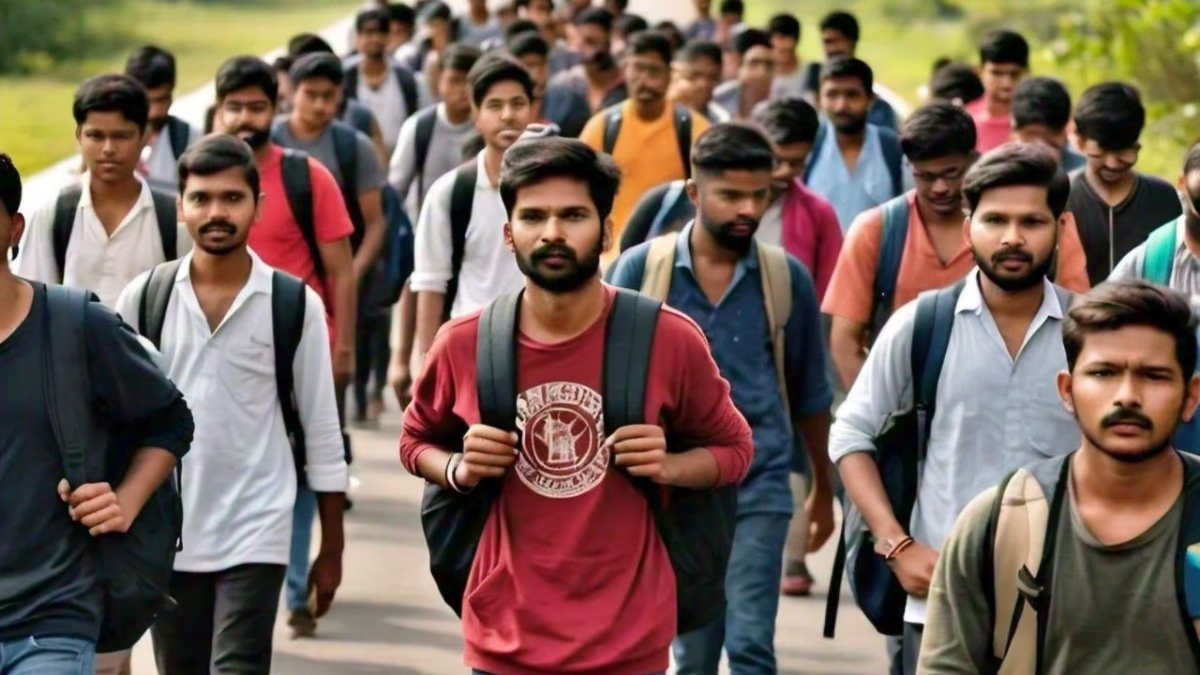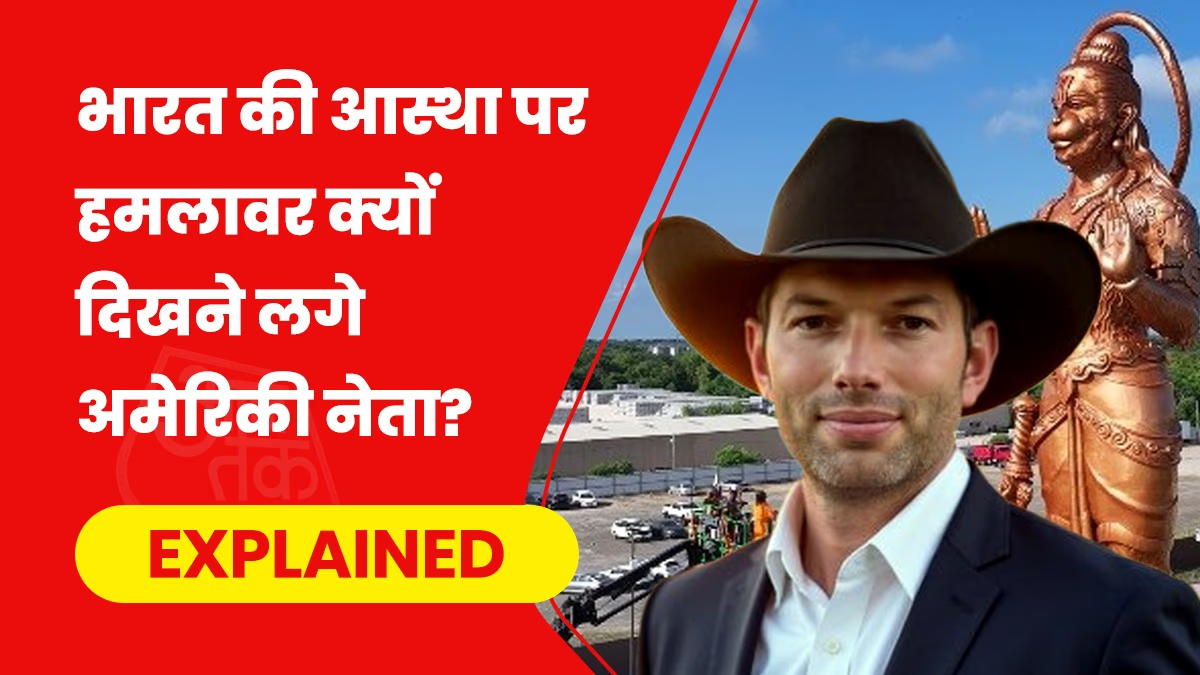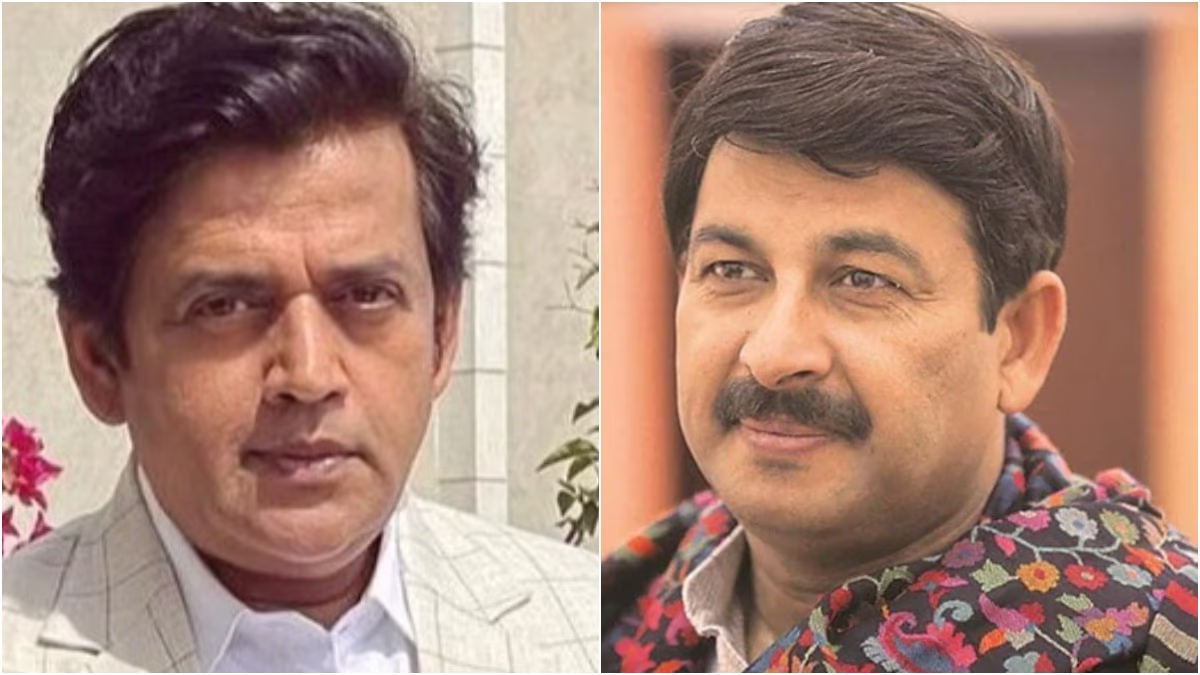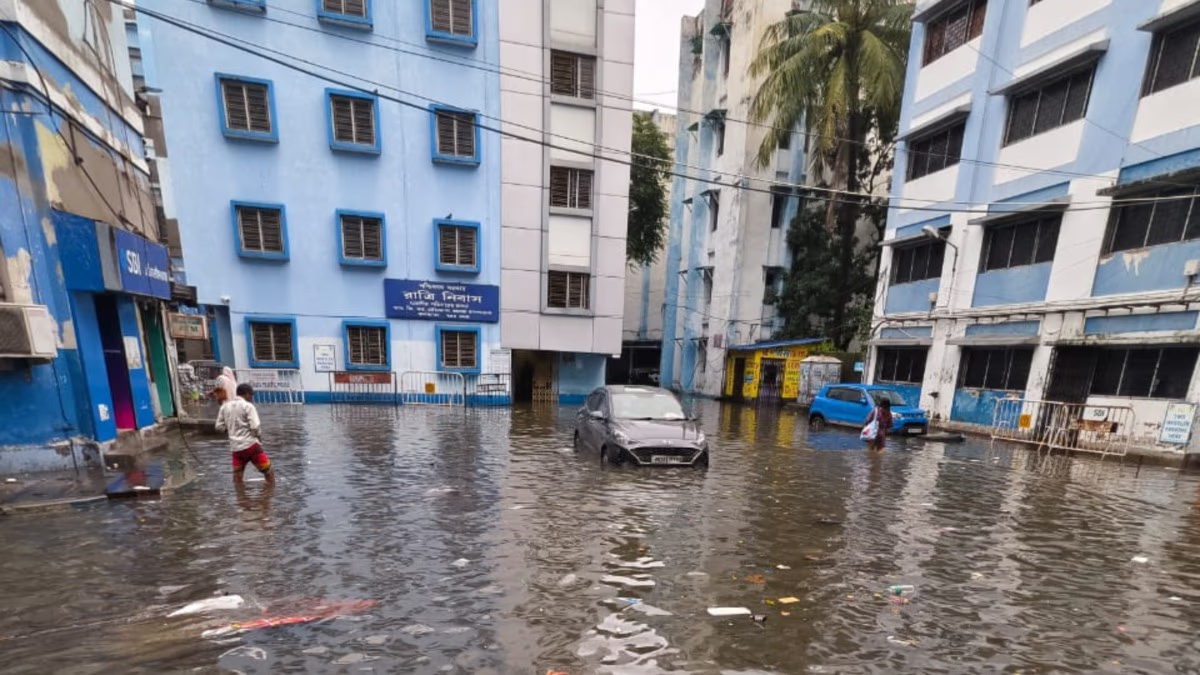The examination for 60,244 constable positions in the Uttar Pradesh Police is underway, with over 4.82 million candidates vying for these spots. This translates to about 80 candidates competing for each position.
While so many candidates are appearing for the constable recruitment, the Yogi government claims that the unemployment rate in UP is lower than the national average.
According to the latest Periodic Labour Force Survey (PLFS) report, the national unemployment rate stands at 3.2%, whereas in Uttar Pradesh, it is 2.4%. The unemployment rate indicates the proportion of the labor force that is jobless. The survey data suggests that the unemployment rate in UP has halved in the past five years, dropping from 5.7% in 2018-19 to 2.4% in 2022-23.
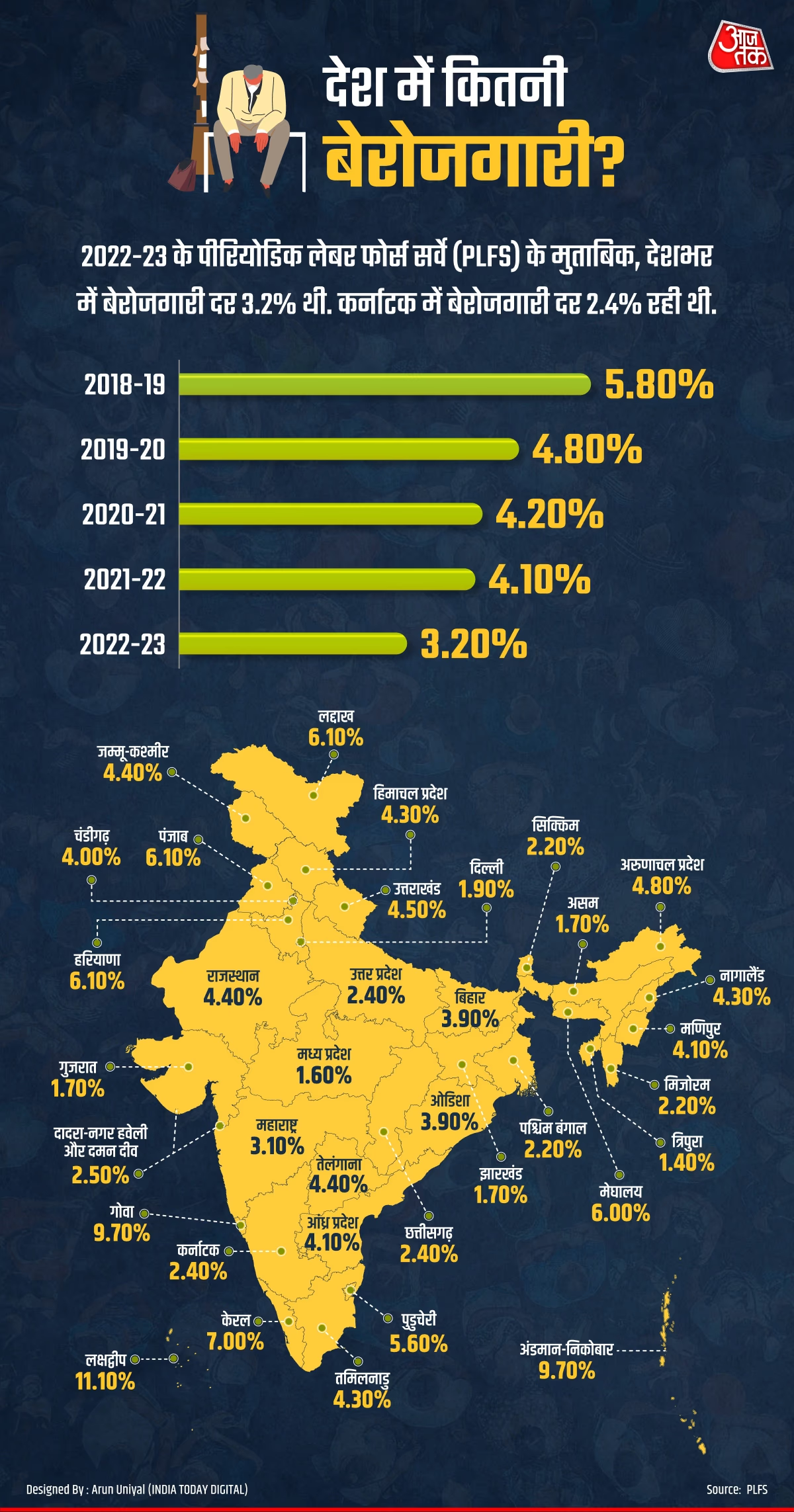
Source: aajtak
Chief Minister Yogi Adityanath has often mentioned the lower unemployment rate in UP, asserting that the situation is under control.
Despite the keen competition for the 60,000 constable posts, only 1 out of every 80 candidates will be selected. This raises the question: are the conditions the same for other recruitments?
Number of Candidates in Recruitment Exams
In 2019, the Yogi government conducted an examination for the recruitment of 69,000 teachers, for which 410,000 youths applied. Out of these, 147,000 passed, and 69,000 secured jobs—a ratio of about 1 in 6 candidates. The number of candidates was relatively lower because only those who had cleared the TET exam were eligible.
In 2018, approximately 1.4 million people applied for 1,918 Gram Vikas Adhikari (Village Development Officer) positions, resulting in a ratio of 1 job for every 728 candidates.
It's generally observed that vacancies requiring only a 10th-grade qualification attract the most candidates. If a job demands a 12th-grade or graduate degree, the number of applicants tends to decrease. For positions requiring technical degrees, the applicant numbers drop even further.
The Yogi government claims that through skill development, youths are being groomed for jobs in the MSME and private sectors. This, they say, is why over 6.5 lakh government jobs have been provided in the past seven years, while more than 20 million jobs in the private and MSME sectors have been secured by the youth.
It is claimed that during Chief Minister Mayawati's tenure (2007-2012), only 91,000 government jobs were given. Between 2012 and 2017, under Chief Minister Akhilesh Yadav, around 200,000 people secured government jobs. In comparison, over 650,000 people have received government jobs during Yogi Adityanath's seven-year tenure.
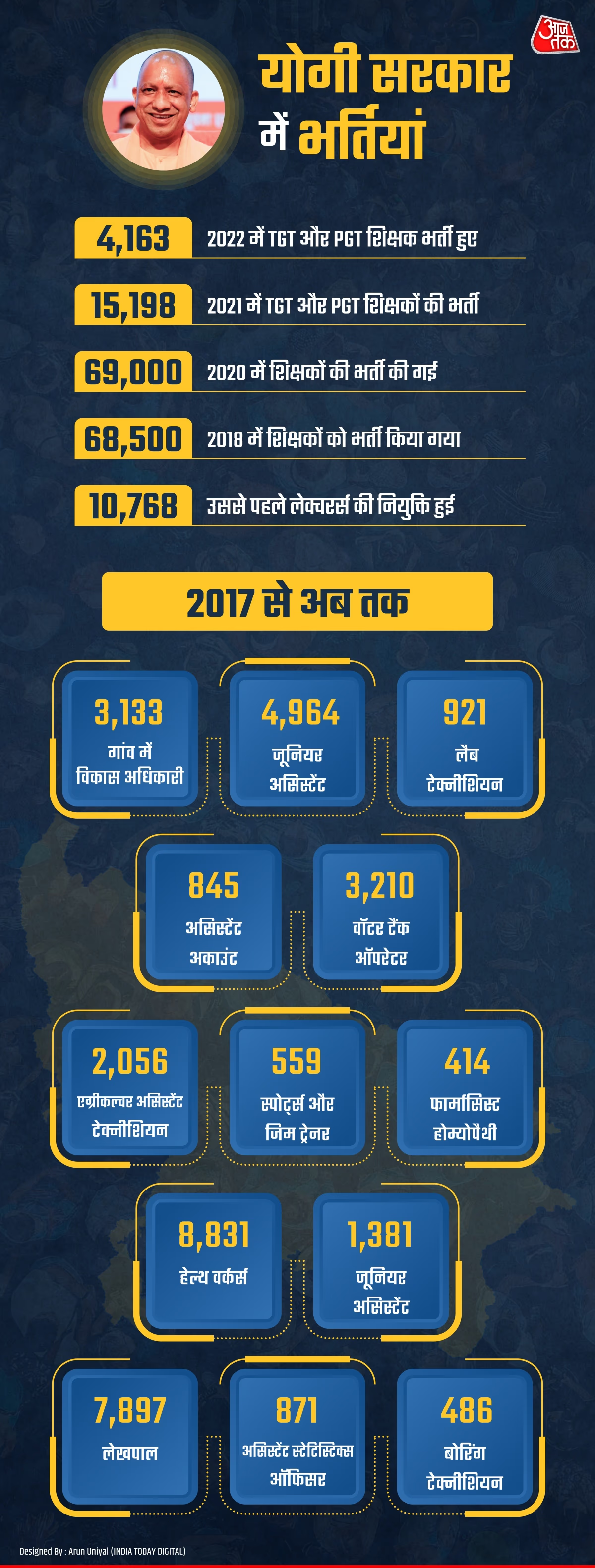
Source: aajtak
The Yogi government has faced criticism, though, for delaying many recruitment processes. Many exams were canceled in the last two years of the Akhilesh administration, and delays increased under Yogi's rule. These setbacks have led to dissatisfaction among the youth. Several examination papers were leaked, causing political fallout in the 2024 elections.
Why Such High Demand for Government Jobs?
Former DGP of UP, AK Jain, explains that securing a government job ensures financial security, which is highly valued by families. Many rural areas produce educated youth who aspire to join the police force because of the allure of the uniform and a guaranteed career.
Jain mentions that graduates, post-graduates, and even engineers are applying for constable and sub-inspector positions, despite many already being employed. Over the past seven years, more than 132,000 police jobs have been filled, predominantly for sub-inspectors.
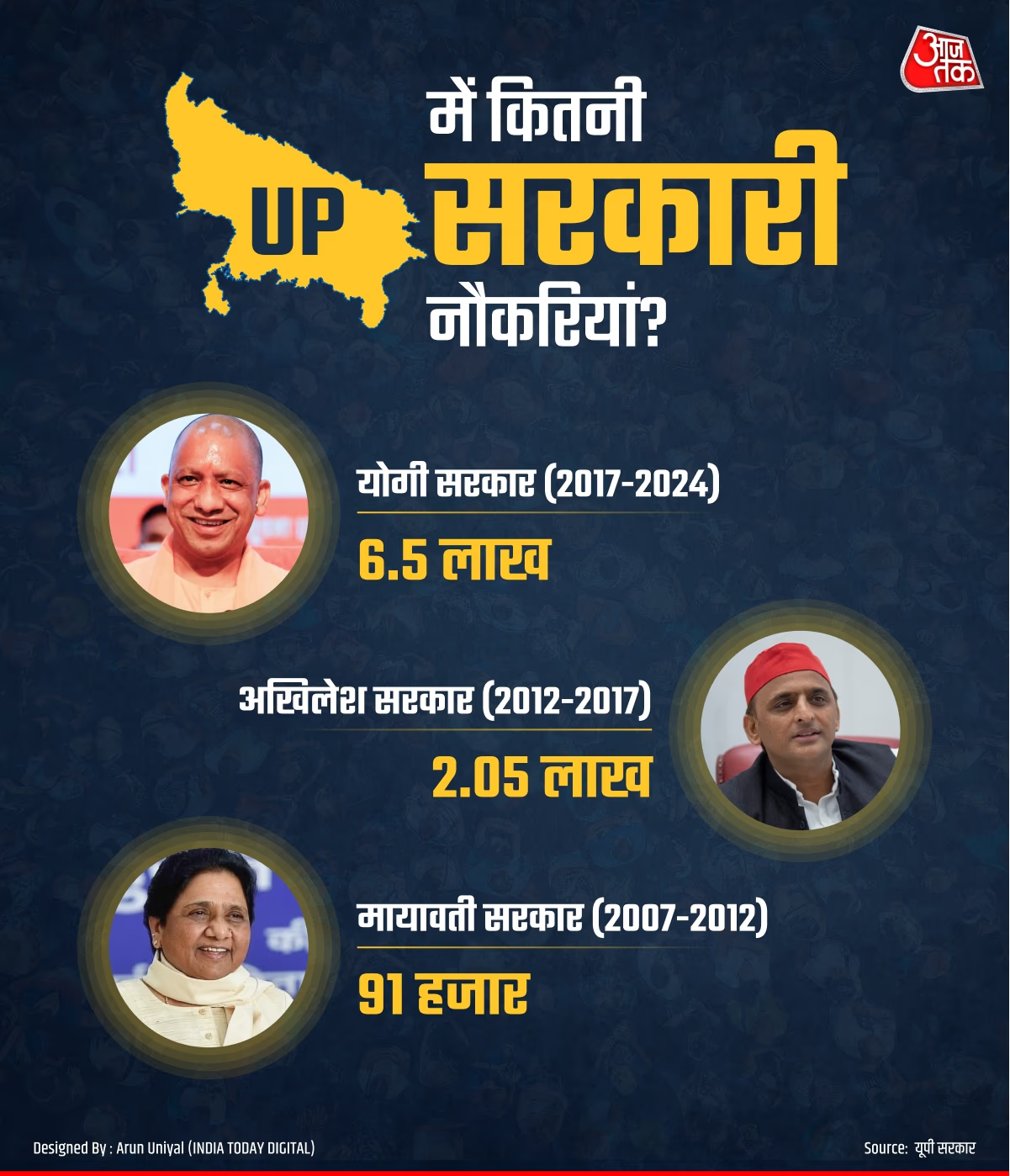
Source: aajtak
Why Aren't Jobs Accessible?
Former IAS officer Arvind Kumar Singh points out that professional studies like polytechnic and ITI developed late in India. In western countries, most people pursue professional education, leading to better job placement. Here, many pursue BA and MA degrees and then seek jobs, hence facing higher competition.
Singh asserts that though there are not many government jobs, there are opportunities in the private sector. However, the qualifications required are often not met by the youth.
Unlike the southern states, where technical education is prioritized, Hindi-speaking states like UP still see a high demand for government jobs. South Indians have long been completing technical courses and settling abroad, but this trend is less common in the North. Many youths still aspire to become constables, sub-inspectors, or secure other government roles for job security.
Arvind Singh advocates for more private institutions to be established. Cities like Bengaluru, Hyderabad, and Pune have become IT hubs, where there's less craze for UPSC exams and more focus on private sector jobs. If Lucknow were to develop similarly, it could shift the focus from government jobs to private sector opportunities.
